No one listens, and no one understands.
“No one listens, and no one understands.” Have you ever said or thought that? You are not alone.
“We have learned that the places to which He (God) leads usually have nothing to do with what we think we will make us happy.” – Erin Napier, Make Something Good Today.
If you ever say, “No one listens, and no one understands,” then you might not be talking about others. You may be talking about yourself.
In all my years of working with teenagers, this was a common refrain. I’d talk to kids, and I’d hear these woeful tales of being ignored, or that no one cared about what they were going through. Or, worse, if their parents didn’t understand, then they’d use what they knew against them.
I live in Mississippi. We are prone to storms. Those on the Mississippi Gulf Coast can tell you about dealing with hurricanes – Katrina was perfectly catastrophic. Other hurricanes have hit there over the years. And tornadoes? Have mercy. Our house has sustained tornado damage three times since we bought it in 2005. Minor stuff – a tree, some privacy fencing, some roof damage – but others haven’t been as fortunate.
Right around the corner from us, during one of these storms, a big oak fell on a house and effectively bisected it. No one was hurt, but the house was split right down the middle.
Here’s where it gets complicated, and causes many to wonder about God. They might say “no one listens, and no one understands, not even God.”
While I was grateful our damage was minimal, and thanked God, I know the owners of the other house were believers, too. It’s great that God prevented damage to our house, but the assumption – and it’s a scary one – is that a positive answer to prayer is evidence that God listens and answers our prayers in a way that pleases us. A negative outcome might lead one to believe that God isn’t paying attention and therefore doesn’t answer us.
That’s Satanic. Mark Twain said that the primary reason he couldn’t swallow Christianity was because of unanswered prayers.
If your issue, then, is that “no one listens, and no one understands,” the reality is that unfavorable answers to prayer doesn’t mean that God isn’t listening.
Read Erin’s quote again. She what she said? God takes you places – and by inference deals in other ways with you – that aren’t what you wanted for yourself.
This makes for some big implications. It may be that your “no one listens, and no one understands” mindset is because you hear things from others, or even God, that you didn’t want to hear.
I won’t presume to interpret what others who don’t listen or understand are all about. It may be that they do listen and understand more than you think.
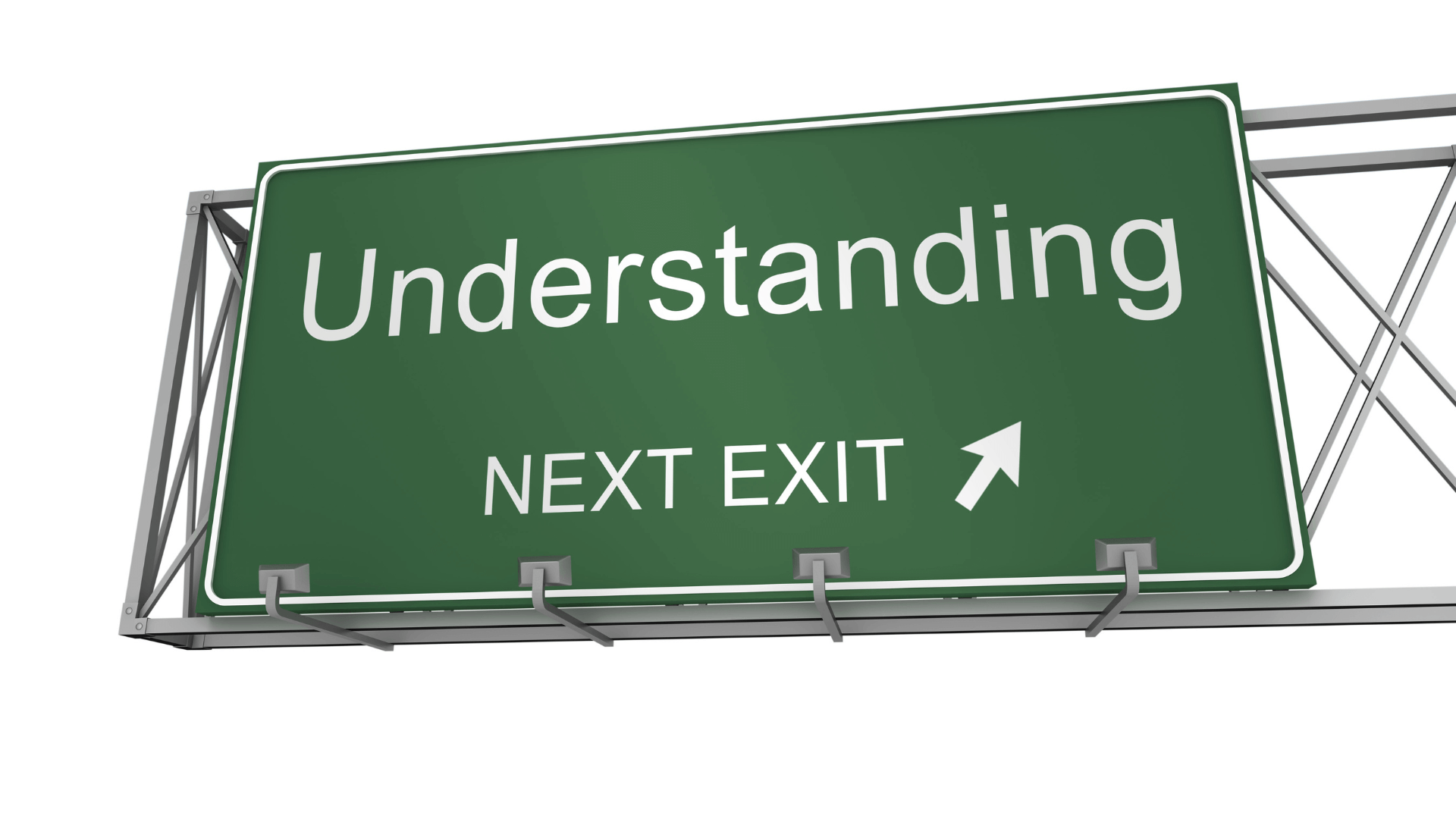
The absolutely glorious news, though, is that God both listens and understands. Think about it:
- God hears all your prayers.
- He knows exactly what you’re going through and what you need.
- God is compassionate.
- He wants to carry the load for you, because His yoke is easy and His burden is light.
- God doesn’t slumber, nor does He sleep.
- He will never leave you or forsake you.
- God’s love never fails.
- He knows your future, every detail of it.
Here is truth, for you who believe no one listens, and no one understands: Just because you didn’t get what you prayed for doesn’t mean that He didn’t listen.
The mental picture I get, and what sustains me, is that when I pray I imagine coming into the presence of God. When I speak, He drops everything, turns to me, and says, “Hey, Tony. You have my undivided attention.”
Cool.
It may be that you’ve asked for things – maybe even prayed for them – and nothing worked out afterwards. I wonder sometimes if God answering our prayers the way we wanted them answered is one of the hardest things we can experience.
We don’t always ask for the things that will help us grow. At the same time, we don’t need to self-edit our prayers. What can we pray about that He doesn’t already know? We have the freedom to talk to Him about our feelings, our fears, and our legitimate needs.
The more time you spend with God, the more you will be comforted. It’s because He listens and He understands. He’s your hiding place, your fortress, the one who gives you strength when you’re tapped out, and He cares for you.
He is never too busy with other people. He doesn’t put you to the side because He’s dealing with world issues.
It all comes down to two choices:
- Lean on God during those hard times when no one listens and understands, and accept His protection, or –
- Anything but #1.
It’s your choice. Choose wisely.
Comments welcome. Talk later!
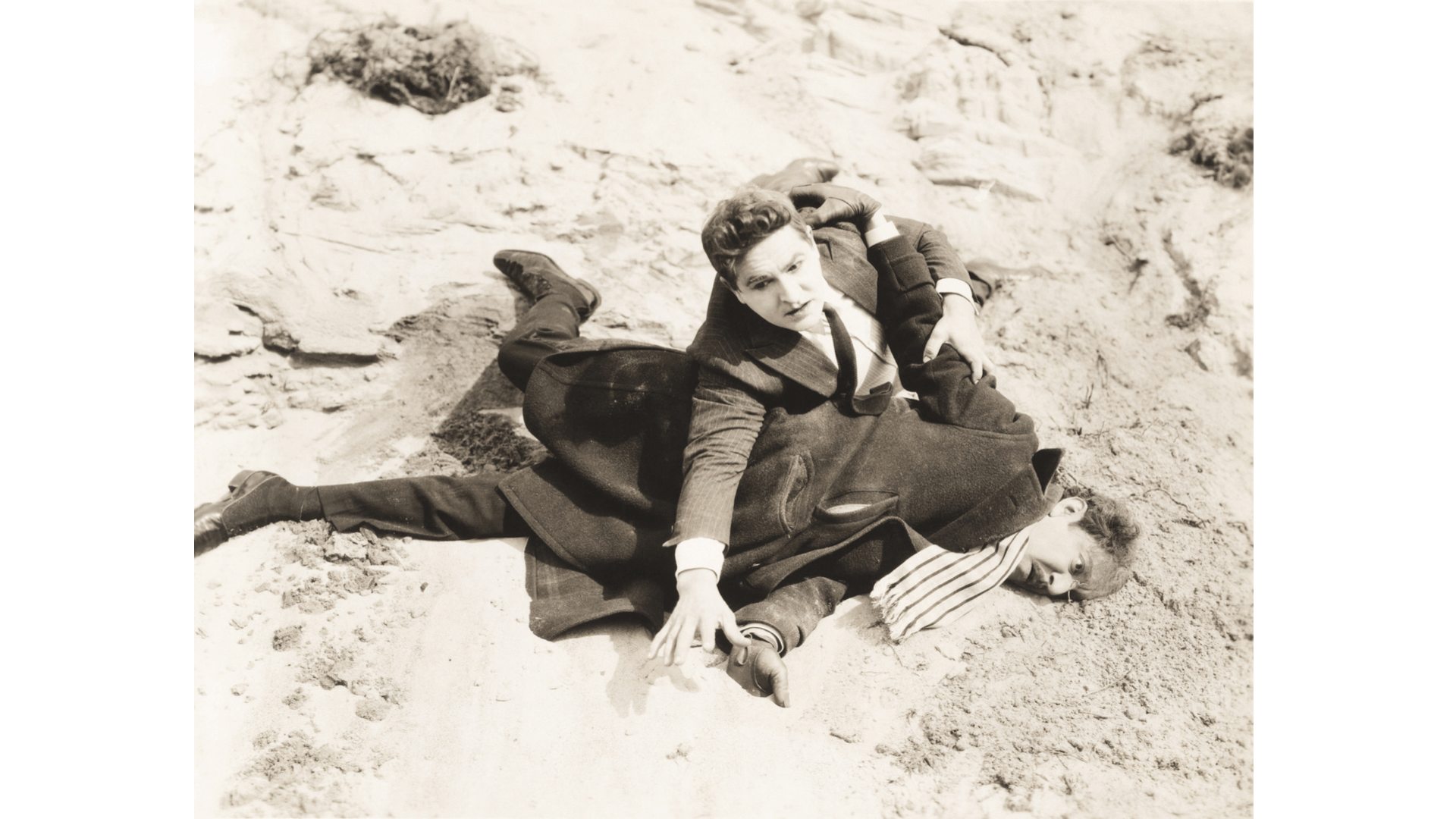


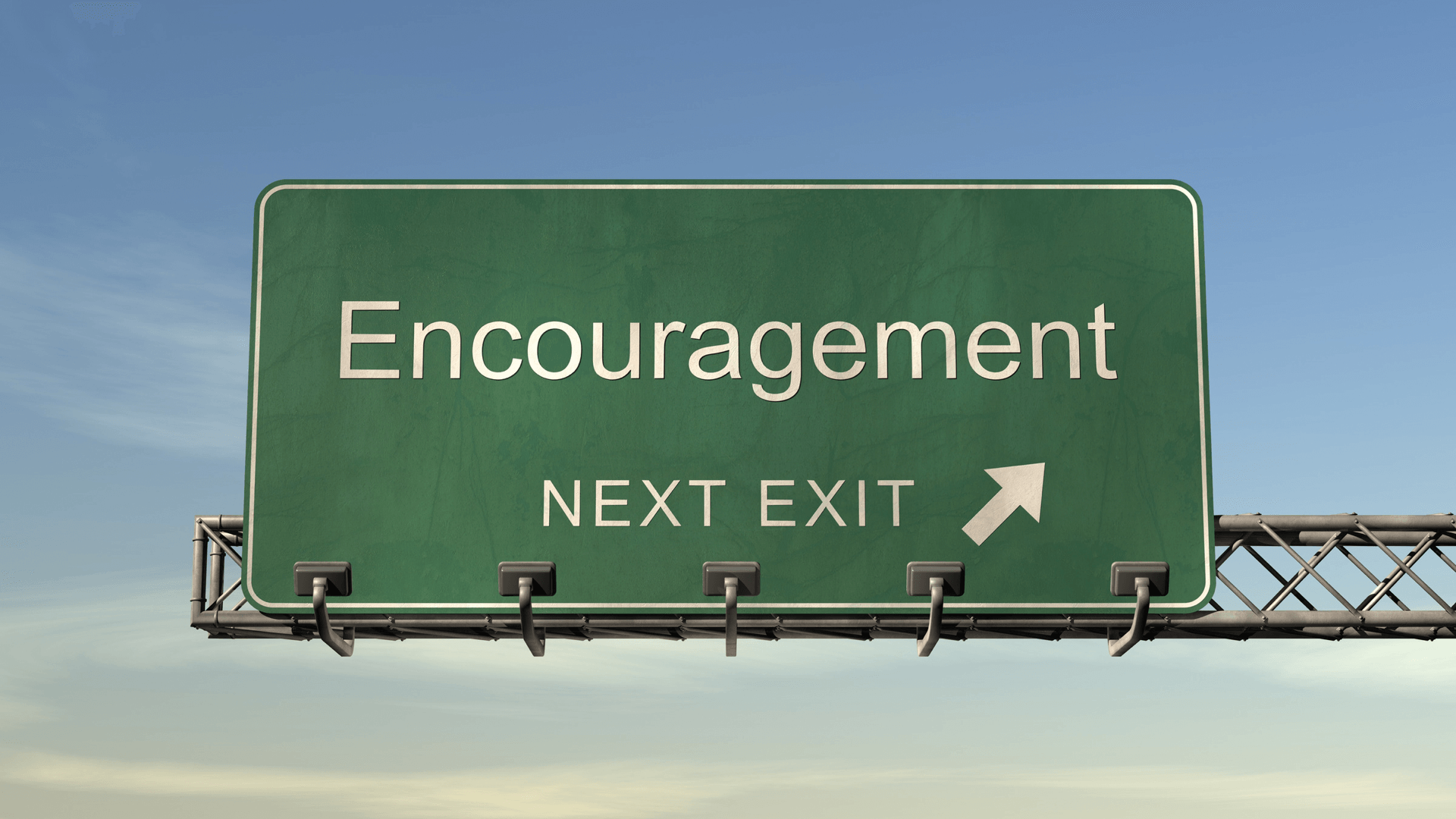

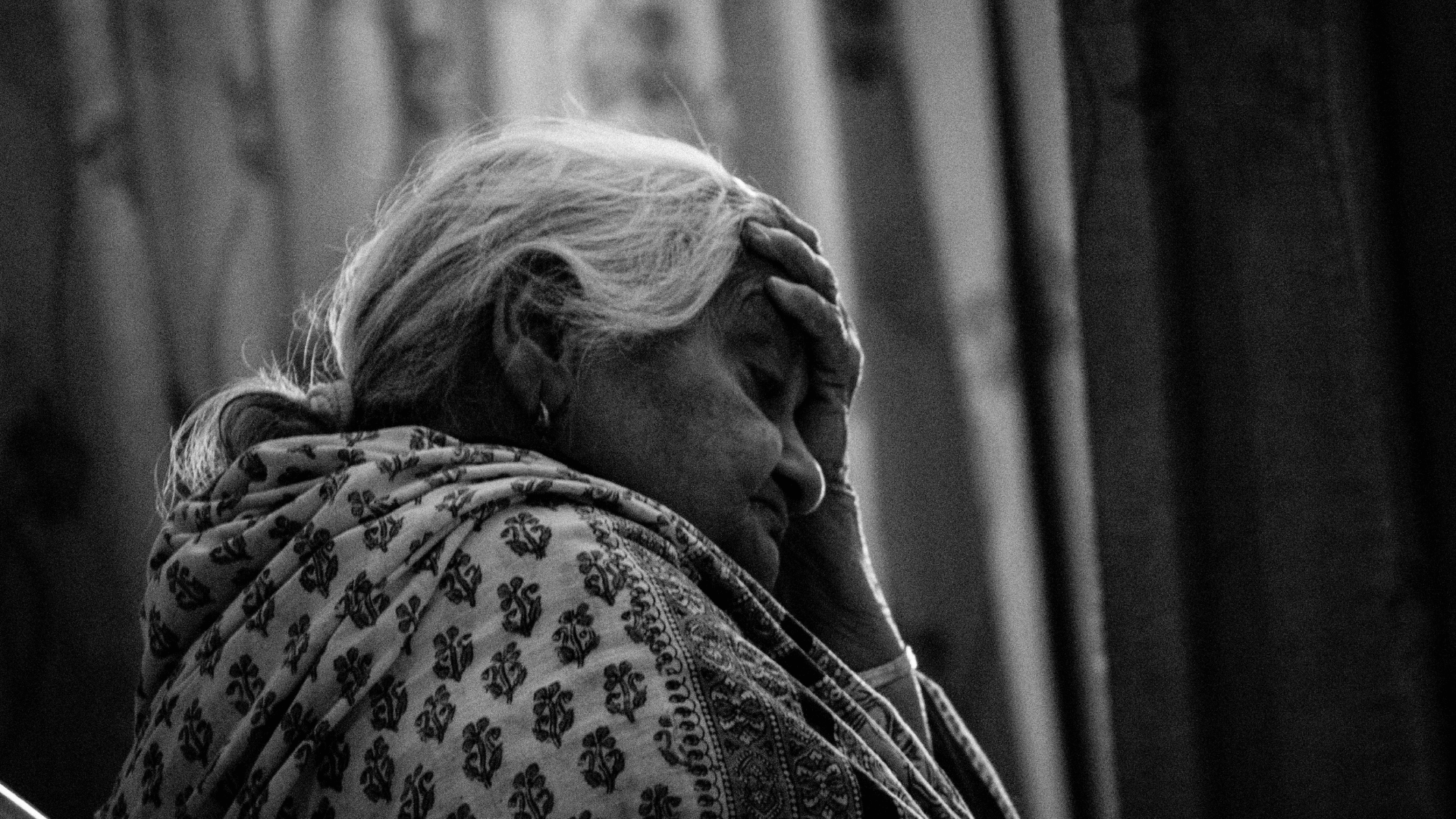
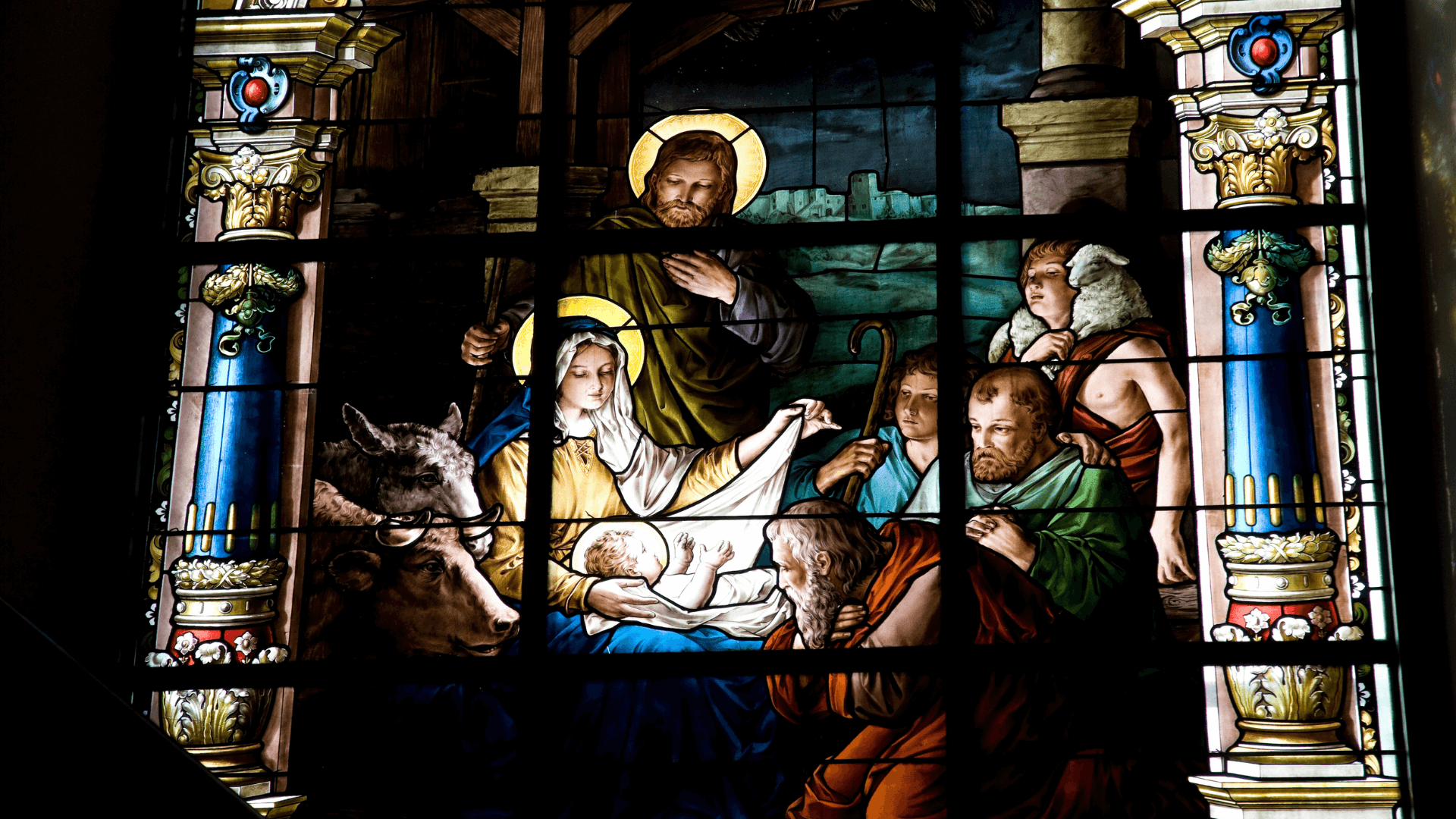
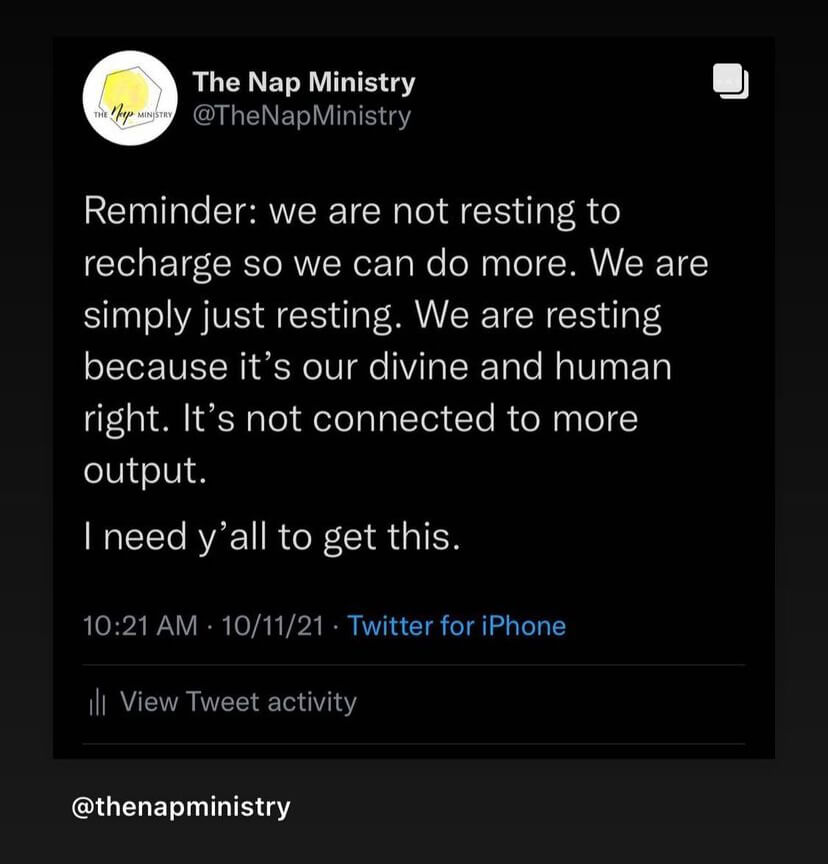 I had to check out The Nap Ministry, and I found that they aren’t a Christian site, so I want to be wary about the term “ministry.” Still, the sentiment expressed here fits in well with the ancient mandate of Sabbath. That’s not something we do well in 2021, at least here in the West, or the United States.
I had to check out The Nap Ministry, and I found that they aren’t a Christian site, so I want to be wary about the term “ministry.” Still, the sentiment expressed here fits in well with the ancient mandate of Sabbath. That’s not something we do well in 2021, at least here in the West, or the United States.

